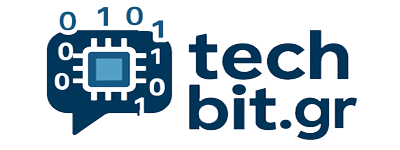At EVE Fanfest 2025, CCP Games unveiled plenty of news for its popular sci-fi franchise. From the latest EVE Online expansion, Legion, to the launch window of the MMOFPS Vanguard and even the survival-like Frontier, fans were treated to lots of announcements and info dumps.
We were on the show floor, having been invited by CCP, and had the chance to interview CEO Hilmar Veigar Pétursson about all these games to understand what the developer has planned for them.
It’s been more than five years since I spoke with CCP, and that was back at G-Star 2019 in Busan, shortly after Pearl Abyss acquired the company. Can you talk about that partnership and how the acquisition has been going for you?
It’s been going great. We’ve largely just been doing our own thing. They’re doing Black Desert and Crimson Desert and we’re doing EVE. They are very nice people. There’s a lot to learn from Koreans, who are extremely hardworking. You don’t have an appreciation for what it is to be hardworking until you work with Koreans. I think we’ve learned a lot from each other. We’ve both been doing MMOs very differently, even if Black Desert and EVE Online are probably so far apart they’re starting to be similar on some level. Both are very complicated.
After March’s GPU-driven Carbon update, capsuleers reported performance being cut by as much as 50% across Intel and Apple Silicon devices. What steps is CCP Games taking to help assure players that performance will improve alongside the graphic overhauls?
Yeah, I think we’re largely dealing with a specific use case involving running multiple clients on the same machine, which is something we’re researching. Generally, we’re seeing a performance increase across more normal use cases. I think we’re making good progress in tracking this down.
For sure, we will update our processes to better account for this multi-boxing use case, which is even sometimes called giga-boxing when you go with about 30 clients running on the same machine. It is something we don’t really test properly for, and we should both trace down this and update our processes for that.
Have there ever been any concerns about leaving behind players who haven’t upgraded their systems in a number of years?
EVE will turn 22 next week. I think there are computers from 2003 that don’t run EVE anymore, which is good. At some point, you have to do that because otherwise it limits how much you can push into the future.
Among corporations, there was The Initiative reset towards the beginning of the year. EVE Online hasn’t seen any major conflicts in 2025 beyond a few minor skirmishes here and there. How long do you expect this tentative peace to last before another large scale battle breaks out?
It’s very hard for me to comment on EVE politics. You need an EVE political scientist to have any informed views on this, but I would say that at the start of the year, there was quite a lot going on, and generally, that does need some time to settle. Sometimes, wars in EVE Online are a little bit triggered around updates, and obviously, we are planning a major update now, which we’re announcing here.
Often, when we do updates like that, it triggers something in the ecosystem. It doesn’t always happen, but often it does. I wouldn’t be surprised if there’s going to be a perking up on the war front over the Summer, but I base that only on decades of observing the meta trends. If you were to base it on something that’s actually going on in politics right now, I would talk to Peter Farrell in our community team. He has the finger on the politics.
EVE Frontier has been one of your big showcases lately. Is CCP Games hoping that Frontier could replace online over time, or are there plans to have both titles coexist?
Absolutely to coexist. I think we have several examples where things can very happily coexist. I remember many people being concerned when the iPad came out that the MacBook would disappear. I think Apple sold the most MacBooks when the iPad came out.
Generally, it has been a good addition to the ecosystem. I think we’ve seen things like in World of Warcraft, with modern and Classic, RuneScape Old School, RuneScape, and now they have released a new survival game. Lineage one and two are also great examples. We have several examples where many ways to experience an IP have absolutely coexisted and added to each other.
Do you believe both titles are aimed at similar players, or do you think there are enough people in the world to populate both?
We have a group of players who played EVE at some point but are no longer playing, and that group is about 20 million people. You basically have 20 million people who are not returning to EVE, and often, when we survey those 20 million people, they are looking for something new, fresh, and enigmatic to get that experience again.
We are largely calling back on the people who played EVE Online at some point and are currently not playing it. We’re absolutely not looking for people to switch. People playing EVE Online today should absolutely continue playing; there’s a lot of amazing stuff coming there.
But this group of 20 million people who were interested in the franchise at some point, we’re calling those back. I think we can see some examples from when WoW Classic came out, where it was like a big reactivation campaign for the game. We were quite inspired by that.
And then we have this lingering impression around EVE Online that, because it’s been going on for over 20 years, it’s somehow too late to join. Even if it isn’t the case, people have this kind of impression, so launching something where everyone is starting from an even base is a useful thing for us to do to see how that plays out with regards to that impression.
For EVE Frontier, you promise a tick rate four times that of what EVE Online currently features. Could this be implemented back into EVE Online, or would that be unfeasible, given how time dilation plays a major part in battles?
With Frontier, we have a unique opportunity to experiment with some violent ideas which are hard to experiment with in EVE, which is a deadly serious business. It’s a little less serious right now in Frontier because it’s a new game and it’s not that serious. It’s an Alpha, and we’re doing a lot of modifications, so we have a unique opportunity to push pretty aggressively on some things we have been hesitant to do on Eve, and messing with the tick rate is one.
Based on how that plays out, for the benefit of doing it and the increased overhead of doing it, then absolutely, once we’ve proven these things out, we will look into what of this makes sense to bring back to EVE. One of the key elements, and we’ve actually been talking about it here at Fanfest, is that we upgraded Frontier to Python 3. EvVE currently runs on Python 2.7, a 15-year-old version of Python. It was about 1 million lines of C++ code and 4 million lines of Python code, and it took 2 years.
It took 4 weeks to get stable, but now we have achieved that in Frontier. We can now look at streaming that back into EVE, which is another big project. Still, we’re doing that project now because we at least know that it can be done, even if there’s a huge amount of additional work to bring it back.
I would never describe it as EVE 2. I would rather describe it as EVE 1 than EVE 2. It is weirdly more like EVE 1, and EVE today is more like 2. That’s why it’s not classic. It would not scratch the same itch as the original. When it came out, because it was so unprecedented, weird, and enigmatic, nobody knew, not even us, where it would go.
I can assure you, everyone who plays Frontier, and there are tens of thousands of people that have done that, they say ‘what the actual fuck is going on here?’
Looking at this from the view of an American, this is very much American frontierism, the manifest destiny. It’s essentially a brand new frontier that you are going to stake your place in.
It’s very much like that. EVE had some of that feeling, but the premise wasn’t quite there. It was a bit of a metropolis kind of feeling; now, it’s very much a survival kind of feeling. Everything is ruined. It’s post-apocalyptic. You need to rebuild a broken world, so we lean heavily on that.
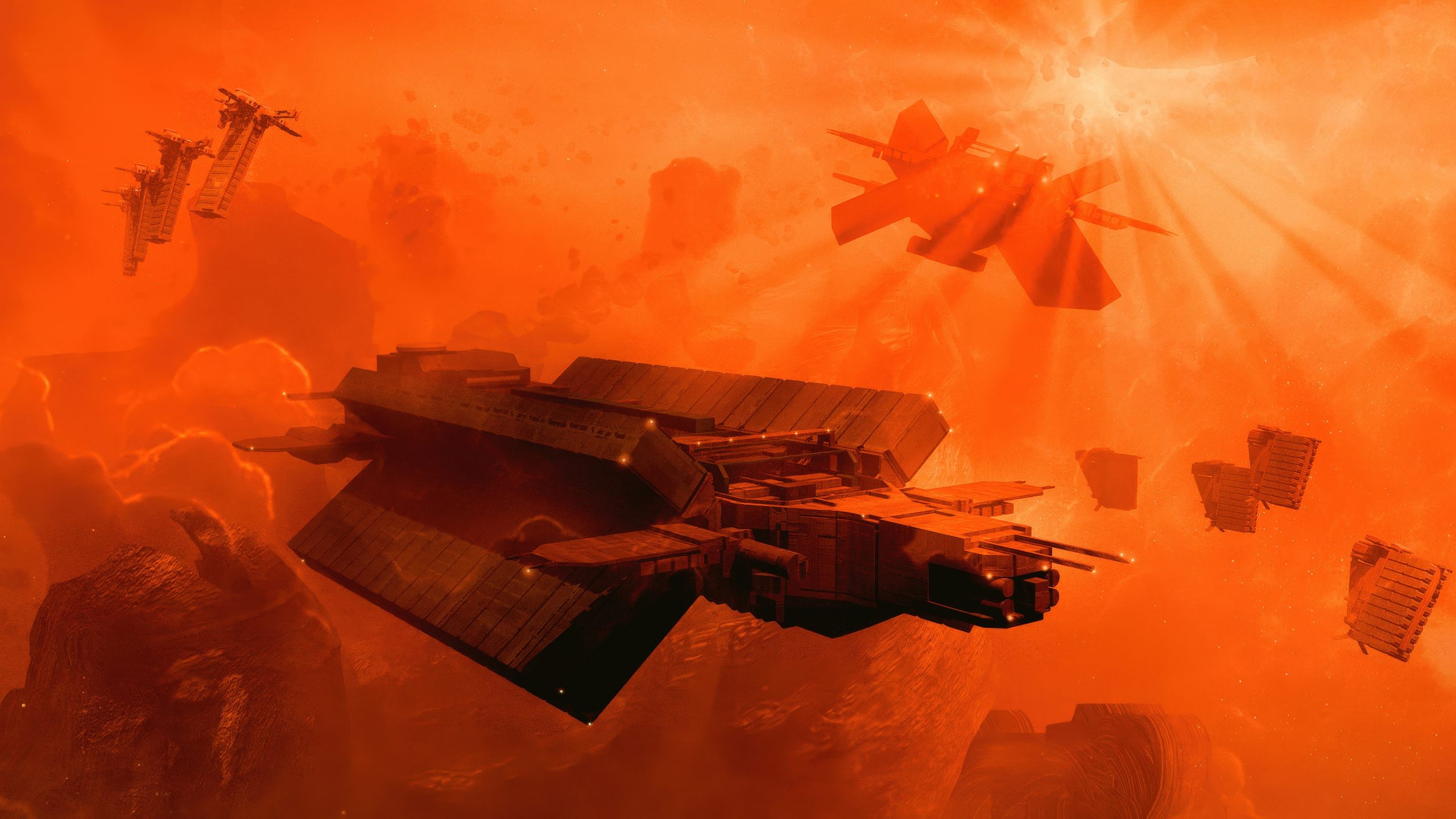
It’s going to be a learning experience for anyone, whether they’re a veteran EVE player or coming in brand new and learning how to play by the new rules in Frontier.
Absolutely. And also for us. I think we’re surprised at least once a year at least by stuff that the EVE online community does. The frequency and degree of surprise we witness from the Frontier community is just a lot. There’s a certain amount of incredulity on our part when we see what the players get up to, but also they have much more agency to get up to stuff through, being able to modify the server.
Yeah, you have the building blocks there with the smart assemblies. Being able to essentially modify the servers can be a very interesting concept for players to get into. I think there could be the possibility of manipulation if a corporation allies itself with using the smart assemblies to corner the market on a particular resource, perhaps, but we’ll see.
Yeah, we’ll see indeed.
Are there plans for freelance operations to be the main way new EVE Online players acclimate to that title?
Yes. Everyone who has watched EVE over these two decades knows we struggle with onboarding new people into the game. The most successful way has always been to use the current social infrastructure to onboard players, so now we’re equipping those entities, the corporations, with better tools to recruit people.
This is a way for players to start working for a corporation without formally joining it, which often seems like a big step for people. Some people don’t want to join a group without knowing something about them. This is a way to achieve that. We have high hopes that this will be the missing link to catch new players. Lots of people come to EVE Online for the first time every single year.
With the freelance system, what mechanics are in place to prevent players from taking multiple jobs off the board and not completing them?
Wow, you’re going quite nitty-gritty.
Griefing is always a concern with online games. It’s human nature to kind of bend the rules.
I will trust my design team, particularly the designer who made this, a legendary player in his own right, to have considered that while creating systems that are easy to understand but difficult to abuse. We have trained ourselves quite a bit in this. I don’t know what the exact implementation is. He could give you the details about how he thought about that, but I can assure you he’s very passionate about this particular system.
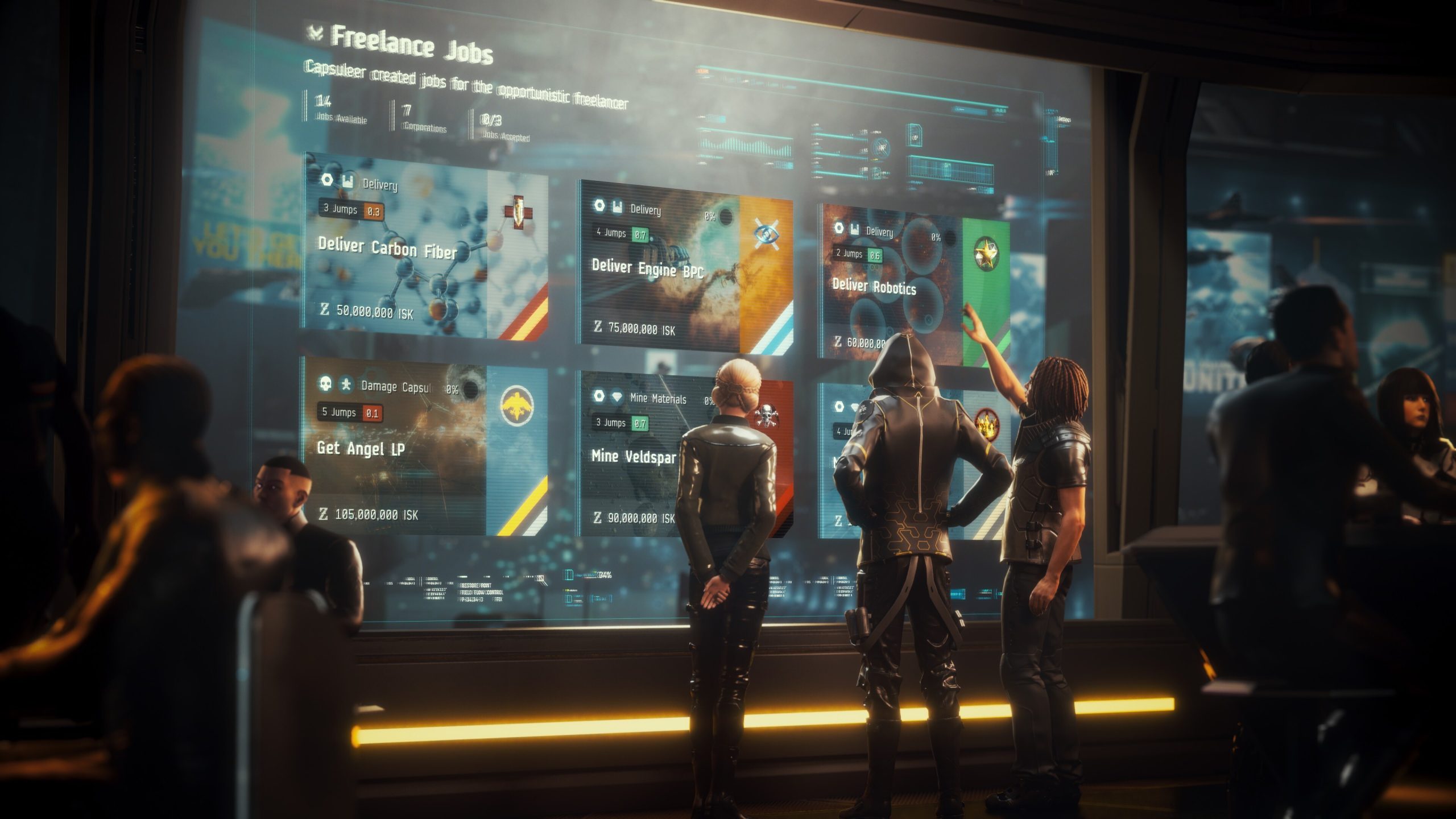
Do you know if multiple players can accept the same job?
I don’t know.
I know this is kind of a buzzword that’s always tough to bring up, but blockchain technology has unfortunately been tainted with low-effort cash grabs and Web3 games that promise residual wealth and never deliver. What kind of real world applications does Web3 offer CCP Games?
Weirdly enough, when we chose to use a database to make EVE Online, I got similar questions. They were like, databases are slow, they’re mostly about banks, and they’re boring, and like, why are you using a database to make a game? And I said, well, I’m making a persistent online game and I’m gonna make sure everything is properly stored and it’s not going to get lost. Seems like a database is a good implementation.
And then we used the database and nobody thinks much of it today. We don’t really sell EVE Online as like, the first database game. It was literally the first database game. Now there’s another database, so to speak. And what we like about this database is that you can decentralise the database. We talk a lot about this kind of forever thing, and the centralization of data is a risk factor in anything forever. Anything centralised is more prone to a single point of failure than something that is decentralised.
The Internet itself is very decentralised for fault tolerance, so we like that aspect. Then we like the aspect of the blockchains that have been running now… I mean, let’s look at Ethereum. It’s been running since 2014, so it’s over a decade, and it has open development on top of it in an adversarial framework. So, if somebody develops an application on Ethereum, they are in a way in competition with all the other applications on Ethereum.
So we want it, and it’s largely held up technically on that level. We wanted to use that aspect to make a mod platform out of an MMO so that you could mod the server side of an MMO with both reads and writes. Because what we have seen in EVE Online where we have an API where people have built amazing things on top, largely by just reading data (you can actually write a little bit, but we are very careful about allowing writes because it’s hard to manage it properly). But we wanted to build a platform where people could mod the server side of an MMO so that everyone could use the mod.
And when you run through the stack of things, that has to be true about any technology that allows for these two things: fault tolerant through decentralization, adversarially sound for economic warfare. Then you eventually end up with something like a blockchain.
I actually made that decentralised computing architecture in the 90s. It was my first gig coming out of university, which was to make a VRML browser in the late 90s in Iceland, actually, and we made a peer-to-peer system. Didn’t have the cryptography, and thus we couldn’t really make the transaction sound. We wanted to experiment. Can we supercharge the third party development/modding? Can we achieve fault tolerance through decentralization? Those are the reasons we’re using it, and so far, so good.
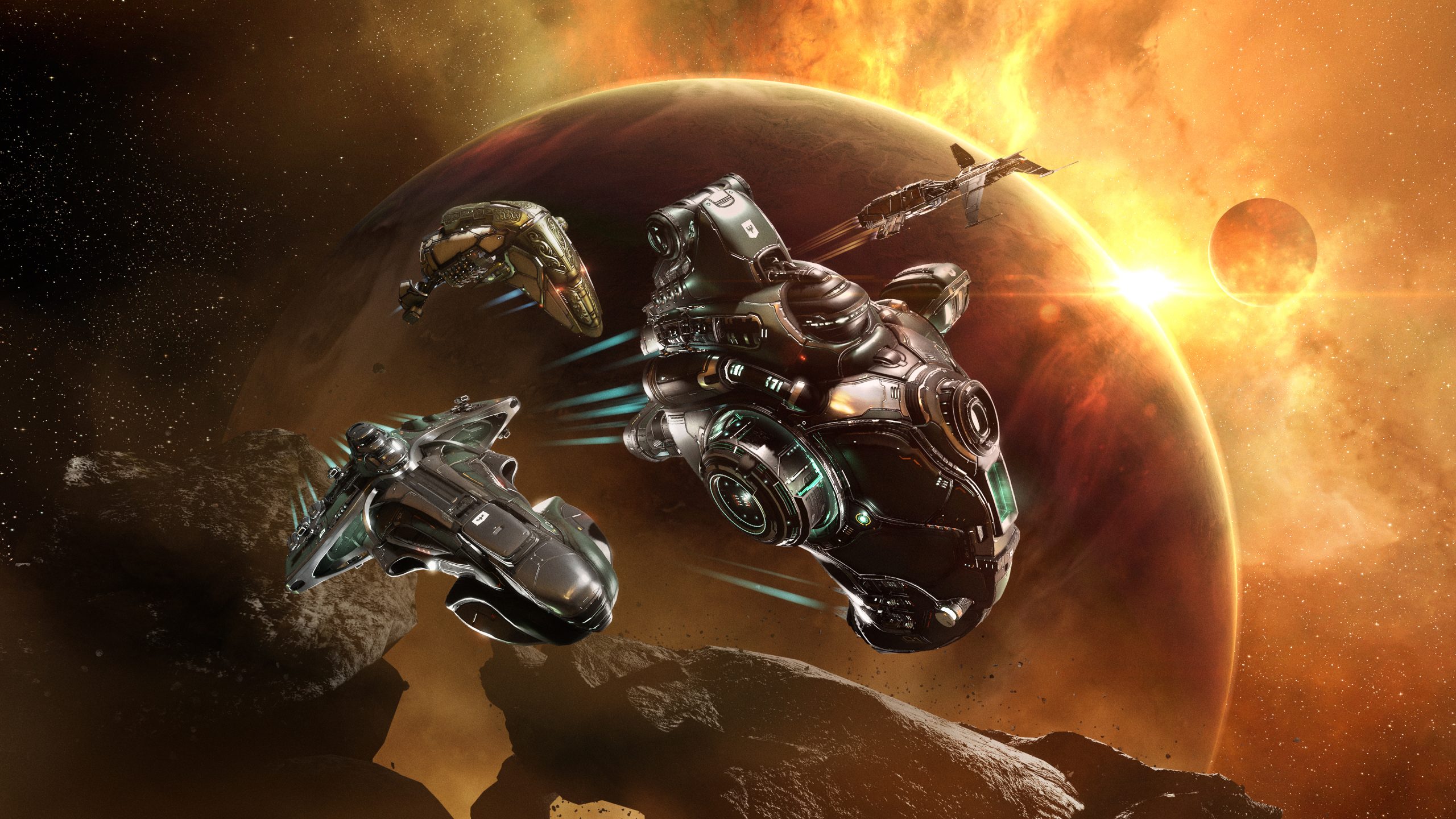
Many players hear about these legendary EVE Online corporation battles after the fact in news stories and videos. Could blockchain technology record a battle and let players watch a battle play out in real time?
Absolutely. Eventually, it will absolutely be able to do that. There will be a footprint record of the blow-by-blow. You would just actually read the blockchain on your own note. You would just run a note and you could play through the state and make your own visualisation of that.
For EVE Vanguard, how have the previous failed attempts at making an MMOFPS influenced this new take?
There’s a huge stack of stuff to that. I think probably the biggest lesson is that Dust 514 was a very big game. There were a lot of features, there was a lot of gameplay in the game. It was like a huge horizontal slice of a game, and because it was so big, we did not really have the time to make all aspects of it good. Now we’re very much focused on that, on every single thing in Vanguard to be very good. All things are around gunplay and experience, moment to moment.
The shooter should just really be a great shooter. It should not lean on a crutch and because it has all these extra things, you can maybe excuse the shooting a little bit. I think that was the fundamental lesson. Another lesson is on the platform. It took a long time to get the performance where wanted on the PlayStation 3, which delayed it at the end of the cycle. The platform of choice now being PC, it’s an easy thing to see after the fact. Doing it on a PC, which is our home ground, and making sure that every aspect of the game is rock solid before we start to scale up gameplay.
I think these are the primary points of what to learn from what didn’t work out. Then, on the other side, what did work out is that people are still clamoring for Dust to come back, because this experience of playing a part in a grand adventure rather than just being a lobby shooter, nobody has delivered on that since Dust 514. You are taking part in a big, persistent, strategic war that’s going to go on for decades.
By the way, I give Sony’s massive props. We got waivers for everything under the sun to use our development methods on the PlayStation 3, and I think it actually taught Sony a lot about their own policies from working with us. Dust 514 was the first free-to-play game released on a Sony PlayStation console. There was a lot of trailblazing. Obviously, some of it was good and not all of it was good. We are ensuring we maintain what was good and address what was not.
One of the aspects that I think drew a lot of players in was the promise that what you did in Dust 514 would be carried forward into EVE Online. So, can players expect further integration?
Yes. What you do in Vanguard will echo in EVE forever.
Can you share some examples of what might transfer between the two?
If we think more of a future state, because this will take a while to work into, just like achieving the kind of Guinness World Record fleet fights we have now in EVE, it took a decade for players to organise themselves up until the point of getting thousands of people to fight together.
It’s a major logistics, so in the future, we’re planning for such logistics to span the solar system and the planets in the solar system to conquer territory in EVE Online. So, to conquer territory, you will have to go planet by planet to conquer the solar system. That means if you were a mercenary corporation in Vanguard, a single shot from one of your soldiers might topple an empire.
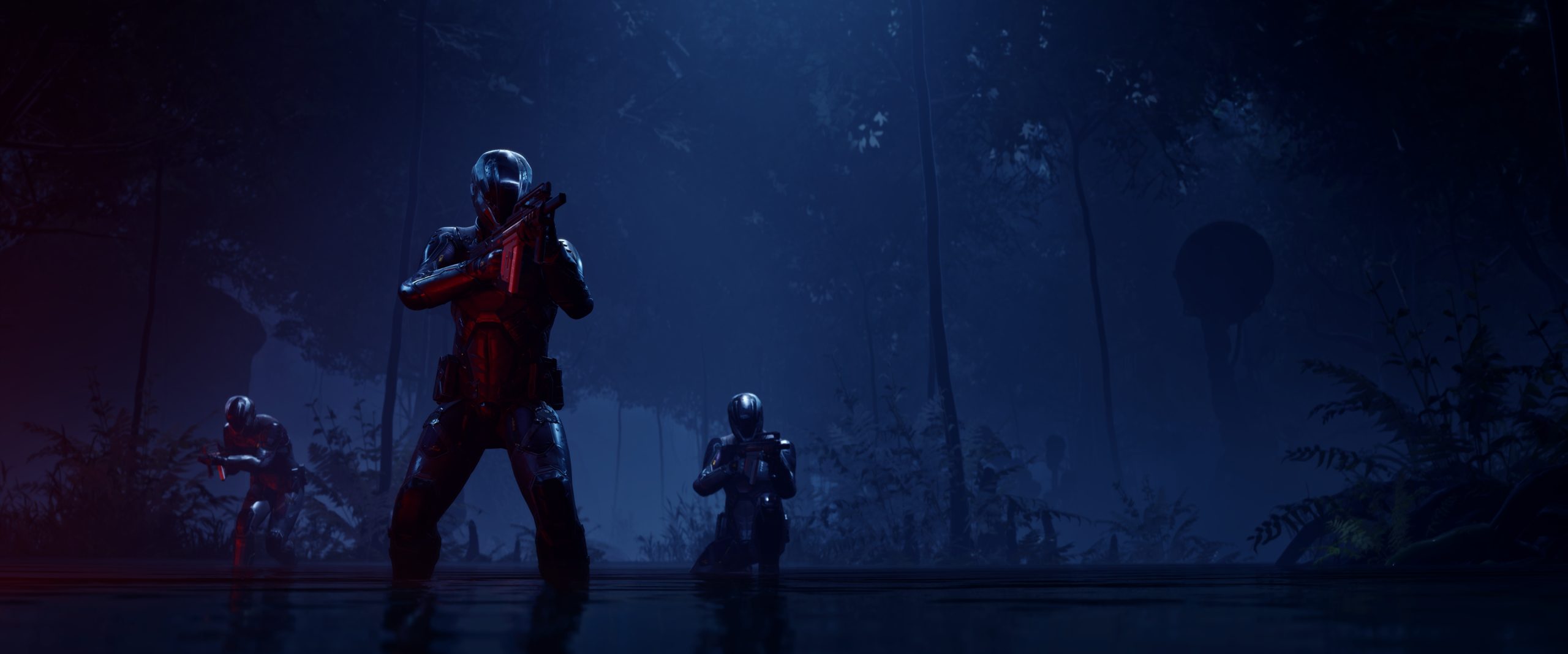
Do you feel that comparisons to Vanguard being an extraction shooter are apt, or would you consider it to be something else?
Vanguard will feature a series of game modes. Some might be extraction-like, and some might be different. Right now, I don’t know how many game modes we have. There are quite a few we’re working on. The second tool that made it into the game wasn’t even a gun; it was a mining laser. It speaks volumes that it’s more than just about a combat experience.
The victory conditions of each mode will evolve drastically over time, because to play a part in the territorial conquest of EVE Online, you will need several types of commissions that you will need to implement in several game modes.
We don’t even really think of them as game modes internally. They’re more like a platform for gameplay experiences. It’s a sandbox environment, and there are various reasons to enter it and various player motivations or purposes once you’re inside it. Some are more combat-oriented, and some will have, as someone says, different victory conditions.
Will corporations from EVE Online play a big part in Vanguard?
Absolutely. You were talking about the freelance jobs earlier. Imagine some of the freelance jobs being for Vanguards. In the corporations, you’ll have a whole suite of jobs you’re delegating to all sorts of people all over space and on the ground.
With the skinner system for ships, can you use those same colour palettes in Vanguard?
I think eventually, what works in EVE will be brought to Vanguard and vice-versa, what makes sense, and I think the corporation palettes for sure. I think it will be a smashing success, but we will always base it on what really gets traction and usually what happens is that people start to request that to be brought to another game.
Speaking of bringing games elsewhere, has CCP Games considered bringing their PlayStation VR 1 catalog games, such as Sparc and EVE Valkyrie, to either the PlayStation VR 2 or the Meta Quest?
We consider this every year, but right now we have our hands full with the games we’re making. We just don’t have the bandwidth to do with one.
For example, there was a period of time when CCP didn’t have an active FPS that the public was aware of. That didn’t necessarily mean that our ambitions to have an FPS in EVE had ever gone away. It’s the exact same thing with this.
There’s always something brewing at CCP, I can assure you.
Who would win 100 new pros or a Titan?
It should be such that 100 new pros can take down a Titan. It should be like that. It is a bit of a design premise of EVE that a bunch of new players should be able to take down any veteran in any circumstance. Whether it is practically like that right now, I think it depends a lot on the new pros. There are probably tactics where it could work, so the new pros would have to know about those. I think that absolutely virgin players off the street might struggle, but if players who really knew the game were to make a new character, they should be able to do it. If it isn’t the case, then that is something to look into.
Thank you for your time.
VIA: wccftech.com
